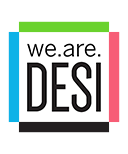Interview with Mahdi Shariff, SVP of Sunteng
Mahdi was interviewed by we.are.DESI’s founder Christian Iachini, as part of a research project to write the article “Nature vs. Nurture: Are Startups All the Same?” published in September 2017 on Linkedin
1. Which world-problem is your startup trying to solve and how did you come up with the idea?
Sunteng began with a mission of adding quantifiable value – a mindset and mission led by the founder David Zhang.
The company first began as an analytics company in 2011, capturing and understanding data to identify and qualitatively assess the impact of the changes (via AB Testing) and the performance of the channels we use to acquire users.
With advertising being the fundamental business model of the internet and new data-driven advertising technologies developing quickly by the likes of Google Double Click, the company spearheaded into developing this programmatic advertising ecosystem locally in China with a focus on better leveraging data and delivering quantifiable performance.
2. Did you find the funding exercise manageable or a nightmare? Tell us when you felt there was a real breakthrough.
Sunteng was modestly angel funded in the early days to build the first version of the analytics platform and begin to commercialise it.
The organization was set up during an internet period where multi-million seeds investment which we see today were few and far between, especially for young entrepreneurs.
Raising funds was challenging as the internet ecosystem was still ‘young’ and so the real breakthrough was focusing on the fundamentals to get to the point where there was a profitable and sustainable business – a very different approach to most internet companies in China.
Since then, Sunteng has continued to scale and grow self-funded, by working closely and supporting long-term relationships with clients and without relying on VC funding.
3. With the startup growth, are you noticing a corporate culture evolution? And if yes, what are the tangible signs of it?
As the startup continues to grow, the corporate culture of the organization continues to change, but still maintains a core DNA that focusses on Technology, which reflects the leadership being both the CEO and technical by nature.
As the organisations grow past >100 people, the culture becomes harder to see it clearly and so it takes more work to ensure the closeness of the organization and the history of where the organization has come from is remembered and embedded in how to do business.
4. If you could go back a few years, what would you do differently? Do you think that what you would have done differently applies only to your startup, or could be a one-fit-all advice for other digital startups?
Going back in time, I believe it would be have been useful to have spent more time defining and codifying the mission, culture and stories of the organization. By codifying the cultural traits it also ensures that the right candidates are recruited into the team that helps ensure the culture is preserved and added to, and acts as a guide for the HR to benchmark them on outside of just capability.
Especially when the organization grows quickly, it’s also easy to forget that the new recruits don’t have the full context of the organization, the behaviours and traditions.
By being clear about who the organization is and what they stand for, it enables everyone to have a closer sense of belonging and work towards a common purpose.
Whilst every situation is different, I do believe that in the chaos of growth of a startup, culture can sometimes be left behind with the focus on ‘revenue-generating activities’ (despite the best intentions) and conscious efforts should be made to truly understand what culture means. Ironically, despite not being directly revenue generating, I do believe the culture in the long term has the biggest indirect revenue impact and is a source of competitive advantage that is challenging to replicate.
5. Of all the marketing activities you have done (events, competitions, articles, advertising, crowdfunding, etc), what do you think gave the best return of exposure and why?
The investment in our own people.
As an organization, each employee is a representative of the company, and thus a channel of communication from the company to the outside world. Over and above external activities, ensuring we do right by the teams, drives an internal advocacy and passion that in terms unlocks the best opportunities and market exposure.
Whether this then results in our teams blogging about their domain expertise or presenting about topics they’re passionate about at conferences, where the initiatives are self-initiated, there’s a differential in the return observed.
However, that said – not all of those activities are scalable in the same way, so for maximum impact especially as a larger organization, a mix of both inorganic and organic channels is often needed.
6. 50% of all startup do not make it past 5 years and close. 53% aim to sell, ideally to larger corporations. 46% of the founders start a new one, sometimes on the ashes of the previous one. And 16% aim to launch an IPO. If you could fast-forward in the future, what do you think will realistically happen to your company?
For ourselves, we continue to grow as an independent company with our own distinct pathway within our industry. As we continue going forward, the most likely outcome for ourselves is for an IPO in the local market in line with the local nature of our business and the wish to control the fate and longer-term mission of the business.
Read the article now “Nature vs. Nurture: Are Startups All the Same?“
Or read the other interviews.



